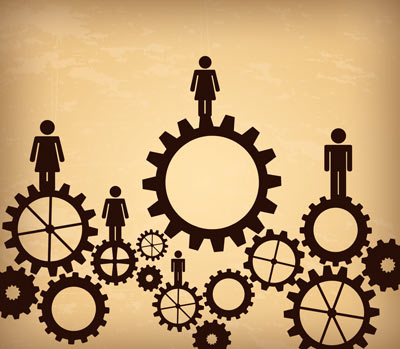
Truthout is an indispensable resource for activists, movement leaders and workers everywhere. Please make this work possible with a quick donation.
It is undeniable that the United States is currently in a period of social, political, economic and environmental crisis. And indeed, average Americans are not trying to deny it. In fact, they have been voicing their discontent through an array of recent social movements: from the Occupy movements, to the massive climate marches, to the protests against racialized police violence in cities like Ferguson, Missouri. The reality that the issues raised by these – and the nation’s many other social movements – are interconnected is also apparent to many Americans: The country is not only in a period of crisis, but is now in a very serious, and deeply-rooted, systemic crisis.
It follows that for a systemic crisis, relief will come only through systemic solutions. This means structural changes to the political and economic systems, and a radical shift in social and cultural norms. Of course, accomplishing this will be no small task and will not look anything like the short-term, financialized growth of the 1990s. The necessary solutions will be distinct from those offered in the past and will require a significant amount of creativity and cooperation.
These systemic solutions are the focus of a new project titled the Next System Project, which launches Tuesday, March 31. The launch includes the publication of a statement on the systemic nature of the crisis, which was signed by 350 prominent activists, policymakers, practitioners, labor leaders, business people and scholars.
“As systems fail, individual and community creativity explodes.”
A number of the signatories also participated in producing the short video below, which echoes the project’s statement. Cofounder and senior adviser to 350.org, Bill McKibben, opens by comparing societies to the human body. “If there’s something systemically wrong, it’s manifesting all over the place, in all our organs,” he warns, “and that seems to be what’s going on in our world at the moment.”
Other recognizable faces join McKibben, including author and whistleblower Daniel Ellsberg, who argues: “We can’t go on like this. We can’t keep moving toward climate catastrophe, nuclear war, persistence of inequality, poverty, [and] famine.”
Sarita Gupta, executive director of Jobs With Justice, emphasizes the need to consider the next step. “We need to be aspirational,” she says, “and be clear about the vision of the world that we want.” Actor and social activist Danny Glover similarly focuses on the opportunities presented by system change, asking: “What is a system that humanizes us? What is a system that opens up our imagination [to] possibilities of cooperation?”
Angela Glover Blackwell, the founder and chief executive officer of PolicyLink, an institute that advances economic and social equity, claims that such a system is not simply a utopian vision, but one that is already beginning to form around us. “As systems fail, individual and community creativity explodes,” she explains, “and that’s what we have seen. The people in this country are solving the problems themselves. They’re coming up with new models and strategies, and within those models and strategies are the kernels of a systemic way to move forward.”
Political economist and historian Gar Alperovitz, who is also cochair of the Next System Project, shares Blackwell’s optimism. “We can actually do better, we can build a better system,” he encourages. “It’s not impossible.”
Going forward, the project hopes not only to expose the systemic nature of the crisis, but also to broaden the discussion around the question: “What comes next?” To read the full statement on the crisis, and to add your name, visit the new Next System Project website.
A terrifying moment. We appeal for your support.
In the last weeks, we have witnessed an authoritarian assault on communities in Minnesota and across the nation.
The need for truthful, grassroots reporting is urgent at this cataclysmic historical moment. Yet, Trump-aligned billionaires and other allies have taken over many legacy media outlets — the culmination of a decades-long campaign to place control of the narrative into the hands of the political right.
We refuse to let Trump’s blatant propaganda machine go unchecked. Untethered to corporate ownership or advertisers, Truthout remains fearless in our reporting and our determination to use journalism as a tool for justice.
But we need your help just to fund our basic expenses. Over 80 percent of Truthout’s funding comes from small individual donations from our community of readers, and over a third of our total budget is supported by recurring monthly donors.
Truthout has launched a fundraiser, and we have a goal to add 182 new monthly donors in the next 24 hours. Whether you can make a small monthly donation or a larger one-time gift, Truthout only works with your support.